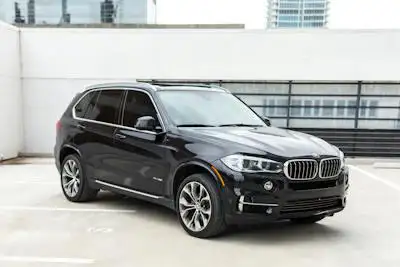1.Dealer Versus Private Sale:
The very source of your purchase sets the stage for the fees you will face. Buying from a dealership typically involves more fees than a private sale. Dealerships handle most of the paperwork, taxes, and registration, but charge for those services. Private sellers might charge minimal fees, like transfer fees, but leave the onus of paperwork and legalities on you. Weigh the convenience of a dealership against the potential cost savings of a private sale to determine the best route for you.
2.Required Fees:
These are non-negotiable charges you'll encounter regardless of where you buy.
Sales Tax: This varies by state, ranging from 2% to 8%. Calculate this based on the car's purchase price and factor it into your budget.
Title Fee: This covers transferring the car's ownership to your name. Costs vary by state, but typically range from $50 to $100.
Registration Fee: This pays for your license plates and vehicle registration. Again, state-dependent, it can range from $50 to $200.
Documentation Fee: Dealerships charge this for handling paperwork like title transfer and registration. It can be negotiable, so don't hesitate to ask about it. Costs vary, but expect to pay between $100 and $300.
3.Potential Add-On Fees:
These are optional fees dealers might try to push, but you can often negotiate or decline them.
Destination Fee: This covers the cost of shipping the car from the factory to the dealership. While generally non-negotiable, compare prices across dealerships to ensure you're not paying inflated amounts.
Reconditioning Fee: This covers any repairs or cosmetic work done before the car is put on the lot. Be sure to understand the work done and its value before agreeing to this fee.
Prepaid Maintenance: Some dealerships offer prepaid maintenance packages, but consider if you'll actually use them before committing.
Extended Warranty: This provides extended coverage beyond the manufacturer's warranty. Research the car's reliability and your driving habits before deciding if it's worth it.
GAP Insurance: This covers the difference between what you owe on your loan and the car's actual value if it's totaled. Consider your financial situation and the car's age before making a decision.
4.Negotiating Tips:
Don't be afraid to negotiate on fees, especially those that are negotiable. Here are some tips:
Do your research: Know the average cost of fees in your area and for the specific car you're interested in.
Be prepared to walk away: This can put pressure on the dealer to lower fees.
Compare prices across dealerships: Get quotes from multiple dealerships to see who offers the best overall deal.
Ask questions: Don't hesitate to clarify what's included in any fee and why it's necessary.
5.Protecting Yourself:
Get everything in writing: Before signing anything, ensure all fees are clearly outlined and agreed upon.
Don't feel pressured: Take your time, ask questions, and don't feel obligated to buy if you're uncomfortable.
Consider pre-purchase inspections: A trusted mechanic can identify any hidden issues before you commit to the purchase.
6.Additional Costs to Consider:
Vehicle history report: This provides valuable information about the car's past, including accidents, repairs, and ownership history. Consider it an investment that can save you money and headaches in the long run.
Temporary insurance: If you need to drive the car home before registering it, you'll need temporary insurance coverage.
Financing interest: If you're financing your purchase, factor in the interest rate and total loan cost.
By understanding the potential fees and being prepared to negotiate, you can confidently navigate the buying process and ultimately secure a used car that fits your budget and needs. Remember, knowledge is power, and a little research and preparation can go a long way in making your used car purchase a smooth and successful experience. Happy car hunting!

